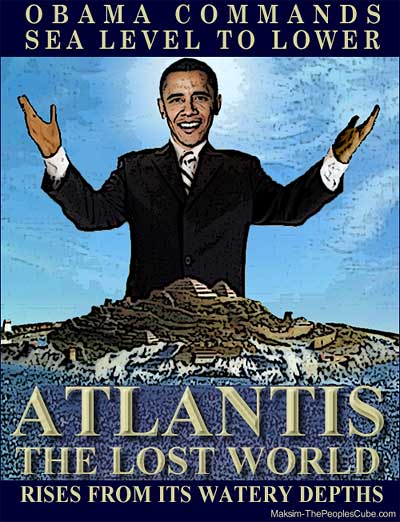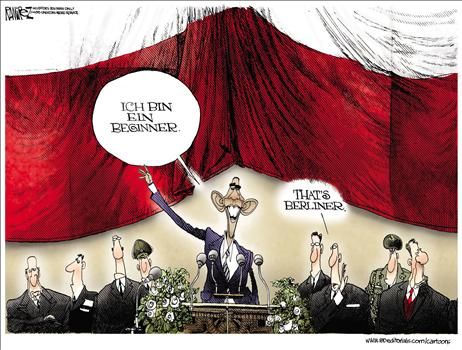
Perhaps the most audacious and virtually the sole claim to fame that Barack “Hubris” Obama has is publication of not just one, but two memoirs. Lordy, the man hasn’t completed his first and only term in national office and he’s already written two memoirs? What life experiences does he have to write about? His claim of “foreign policy experience” includes living in foreign countries when he was 6-10 years old? That’s audacity.
On the other hand, we have John McCain, who not only has years of experience in the U.S. House and Senate, he’s also had a U.S. Navy career. I’ve been waiting for McCain to use Reagan’s famous line when Obama hints his opponent is “too old.” Obama’s short resume is tailor-made for Reagan’s crack which turned the tables on Mondale by saying “I promise not to hold my opponent’s youth and inexperience against him.”
David Ignatius of The Washington Post compares the candidates, writing about McCain’s memoir of his Navy career in McCain's True Voice
…If you want a reminder of why McCain should be a formidable candidate, take another look at his remarkable 1999 autobiography, "Faith of My Fathers."
McCain's account is as revealing as Barack Obama's memoir, "Dreams From My Father." Both candidates have written powerful accounts of their formative experiences. Each tale is woven around the universal theme of fathers and sons. Given the psychological torments that often drive politicians, it's a blessing to have two candidates who have examined their lives carefully and appear to understand their inner demons.
But these two memoirists couldn't have more different stories to tell, and that's what should make the 2008 campaign so interesting. Where Obama describes a quest for an absent father and an African American identity, McCain's early story is about learning to accept the legacy of a famous family where both his father and grandfather were four-star admirals.
McCain was a wild man in his youth, drinking and chasing women like a renegade prince of Navy royalty. He is brutally frank in his description of this protracted adolescence, describing his years at the Naval Academy as "a four-year course of insubordination and rebellion."
McCain's burden, and ultimately his salvation, was the military code of honor that his forefathers embodied. He was from a family of professional warriors, as far back as he could trace his ancestors, and he says this gave him a "reckless confidence" and a sense of fatalism. But it also produced an unshakable bond with his fellow officers and enlisted men -- and to the nation they had pledged to serve. Leadership, the art of guiding men courageously in war, was the family business.
The McCain story converges on his 5 1/2 years as a prisoner of war in North Vietnam. In the conventional telling, it is a tale of heroism -- how McCain refused an offer of early release, how he braved torture year after year, how he turned his insolent anger against his captors.
Certainly all those heroic details are present in McCain's memoir, and in his political appeal this year. The Vietnam legacy of steadfastness motivated him to resist American failure in Iraq and to agitate, sometimes almost alone, for what came to be called the "surge" of U.S. troops. When he says he preferred political defeat for himself to military defeat for his country, he is telling the truth. With an ex-POW's stubbornness, he could not abide the notion of failure and dishonor for U.S. forces.
But what makes McCain's account of his captivity truly remarkable is not the heroism but the humility. In page after page, he praises men who he insists were braver than he was. Though even the toughest prisoners were broken by torture, he cannot forgive himself for signing his own confession: "I shook, as if my disgrace were a fever." He survived through solidarity with other prisoners who were "a lantern of courage and faith that illuminated the way home with honor."
That’s the bedrock difference between the two candidates. One has actually been a leader for 30 years. The other has played one on TV.























